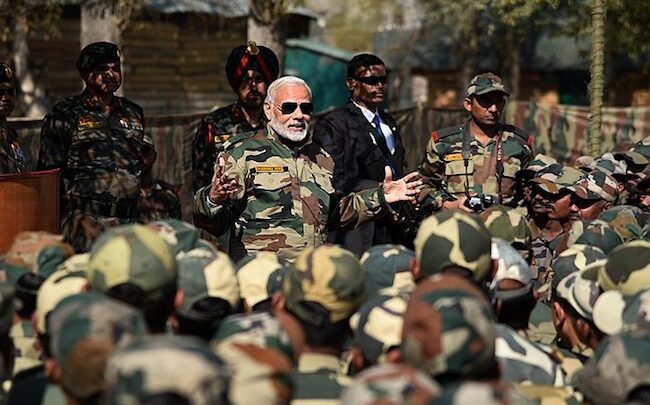India’s discriminatory attitude toward minorities expose India as a fake union

By Saima Afzal
On 26th of January, every year India celebrates its republic day because on this day Indian constitution came into effect by replacing the Government of India Act (1935). The Indian constitution declared the newly independent Indian Republic as a secular state. However, constitutional failed to transform Indian society into a secular state due to the discriminatory attitude of Indian leaders towards minorities’ rights and overwhelming Hindu-majoritarian temptation instigated by right-wing religious and political parties.
Democracy and secularism is called the soul of Indian constitution, but since the last many decades the Indian discrimination with minorities have raised many questions regarding India’s democracy and secularism. The growing antagonism under the watch of the current BJP government against Indian minorities is merely the manifestation of inherent bias towards non-Hindus. India is a residence of many races, ethics, religions and languages. Since 2014, when Modi’s Bhartiya Janta Party came into power, it has ruined the religious freedom. However, Modi’s discriminatory policies are mostly against Muslims, but discrimination against Christian and Sikh community have also increased. International Human Right organizations reports have also highlighted Indian discriminatory attitude towards minorities. US Commission on International Religious Freedom in his report also declared India as a second tier state.
It is sad and shameful that since May 2019 Indian atrocities against Muslims have increased when Bhartiya Janta Party (BJP) second time succeeded with majority in general elections. On 5th August 2019, the Modi government abrogated Articles 35-A and 370 of India’s constitution and took away the autonomy of Jammu and Kashmir; dividing the state into two Union territories. India has converted a UNSC declared disputed territory between Pakistan and India, into its integral part, which is in total violation of the UNSC resolutions on Kashmir. India also imposed complete lock down on Indian Occupied Jammu and Kashmir. Almost from last two and half years, sixty lakh Kashmiri are under sieged and they have been deprived from their democratic rightsand their voices subjugated. On November 2019, Indian Supreme Court gave verdict to Hindu extremists to build Temple in place of Muslim’s Babri Mosque while denying all property rights of Muslims.
On December 2019, Bhartiya Janta Party which based on the extremist philosophy of Rashtriya Swayamsevak Sangh (RSS) have ratified the Citizen Amendment Act (CAA)instead of protecting minorities’ rights that are granted to them according to IndianConstitution. The Citizenship Amendment Act violates India’s international obligations to prevent deprivation of citizenship on the basis of race, color, descent, or national or ethnic origin as found in the International Covenant on Civil and Political Rights and other human rights treaties that India has ratified.
The Indian Government passed the three farm laws in September 2020, and farmers protested against these laws which continued for four months, most of them were from Sikh community. India is a classic example of shame democracy, alienation of minorities, and freedom struggle in entire periphery of Hindu heartland. Deprivation of lower Hindu classes from basic civil rights. Attack on religious places are few examples of Indian imperfect fake Union of contradictory ideology.
Hindutva is a modern political ideology that advocates for Hindu supremacy and seeks to transform India, constitutionally a secular state, into an ethno-religious nation known as the Hindu Rashtra (Hindu nation). Hindutva is the official platform of the BJP, an extreme right political party in India.
For years, Indian political leadership deceived the world by presenting a secular outlook; however, the course could not continue forever. The underlying Hindutva ideology, led by Hindu extremists, has exposed a wedge between Hindus and non-Hindus, often considered as remnants of invaders by the Hindutva leaders. Thus, Indian ethnic and religious minorities not only feel insecure in modern day India, where they face segregation and persecution, but also question the raison d’etre of the Indian Union. The notion of Indian Union is between rock and a hard place as religious and ethnic minorities are seeking for independent homelands while Hindu-extremists are pushing to convert India into Hindu-Rashtra. Rising discontent among Indian minorities, religious polarization, and booming separatist movements in various states depict that the idea of Indian Union, created on deceit and false promises has failed. It is time that International community need to focus and pressurize India to equally treat minorities and their basic rights should be protected.
Saima Afzal is Islamabad based analyst.




